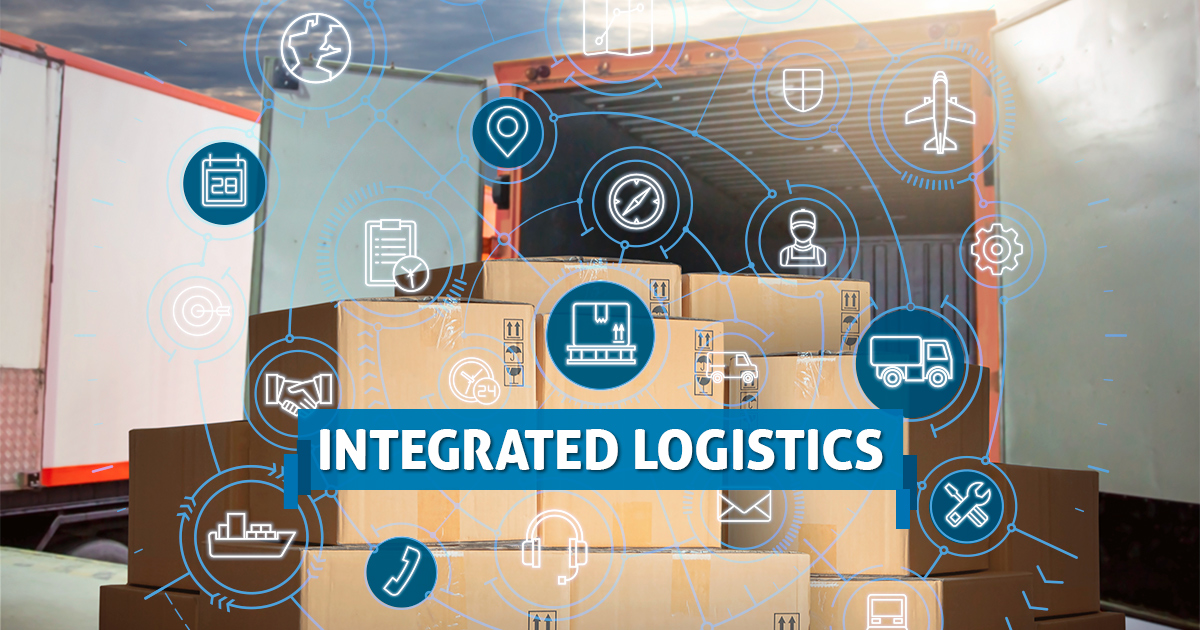
Integrated logistics is a term that refers to the coordination of different business activities. Logistics managers implement it to improve the efficiency of goods and information flow. Businesses used to operate each function separately, but today it’s recognized that an integrated approach is necessary to stay competitive.
Integrated logistics can help businesses reduce costs and improve communication. It also allows logistics managers to provide better customer service. Businesses must utilize integrated logistics to stay ahead of the competition in our increasingly globalized and complex world.
How Can Integrated Logistics Benefit Your Business?
Logistics is the term used to describe the management of resources between two points. This process includes planning, implementing, and controlling transportation and storage aspects. Integrated logistics is a type of logistics that considers all aspects of the supply chain as a whole. This means transportation and storage are considered together rather than as separate parts. Consequently, integrated logistics can make businesses more efficient, reducing costs, and providing customer satisfaction.
Increased efficiency
Improved efficiency is one of the most desirable outcomes of integrated logistics. When every element in the supply chain is examined as a unit, it becomes simpler to pinpoint weaker areas that require optimization. For example, if there is a traffic jam on the highway, it can be quickly identified and addressed. As a result, businesses can avoid costly delays and disruptions. Additionally, by taking an integrated approach to logistics planning, businesses use their resources more . For instance, they coordinate transportation and storage activities to minimize wasted space and costs.
Improved customer satisfaction
Incorporating logistics into your business portrays a level of customer care. By analyzing every stage of the supply chain, businesses can engineer their systems to poise themselves for success and better cater to customers’ needs. For example, they can ensure that products are delivered on time and in perfect condition. Additionally, by considering all aspects of the customer experience, businesses can develop more effective marketing and sales strategies. Ultimately, by providing a better customer experience, businesses can generate repeat business and earn revealing feedback that helps them improve their operations even further.
Tips For Implementing Integrated Logistics
1. Establish clear goals:
Determine your logistics objectives and how integrated logistics can help you achieve them.
2. Identify current processes:
Take a close look at all the processes that make up your current supply chain, from ordering to transport to delivery.
3. Invest in technology:
Understand the various technologies available for tracking shipments, automating dispatches, and more. Invest in those that align with your operations’ needs.
4. Streamline communications:
Connect all stakeholders in your supply chain, customers, suppliers, and transportation providers, on one platform for efficient communication.
5. Track progress:
Collect data on each shipment and use analytics to track progress and identify areas for improvement.
6. Optimize transportation:
Analyze your routes and look for ways to reduce costs while still meeting customer needs.
7. Utilize data insights:
Turn your collected data into actionable insights that can help you improve processes, address gaps in the supply chain and gain a competitive edge.
8. Monitor performance:
Monitor the performance of your integrated logistics solutions on an ongoing basis. If needed, make adjustments as needed to ensure maximum efficiency.
9. Foster collaboration:
Involve all stakeholders in developing and implementing your integrated logistics plan. Ensure everyone understands their role and how their contributions will benefit the organization.
10. Measure results:
Track key performance indicators to measure your integrated logistics initiatives’ success. At the end of implementation, make sure that goals are met. If not met, study the data and devise a plan to meet the missed goal.
The Future Is In Integration
Integration logistics is a complex and essential process to ensure the smooth operation of businesses. It requires careful planning, management, and coordination to be successful. By leveraging technology, data, and automation tools, integration logistics can help organizations improve their supply chain efficiency and reach their business goals. Ultimately, it is an invaluable tool for companies looking to streamline operations and achieve success in the long term.
SEE ALSO:
